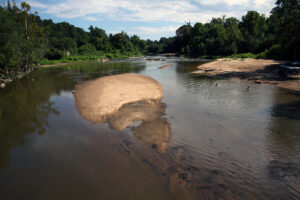News
Riverkeeper weighs in on Raleigh tap-water woes
Algal Blooms, Environmental, Neuse River Watershed, Sound Rivers, Water Quality
Posted on April 25th, 2024
In the news this week were reports of bad-smelling, bad-tasting tap water in Raleigh.
The City of Raleigh explained the phenomena as a result of algae in Falls Lake, as seen on the City of Raleigh’s website:
“The City of Raleigh’s water system is supplied by two lakes, Falls Lake, and Lake Benson. In the past 24 hours we have experienced an increase in calls related to taste and odor in the tap water. Falls Lake is currently going through seasonal variations caused by factors such as temperature and available sunlight. These seasonal variations in environmental conditions can lead to fluctuations in naturally occurring algae and algal activity.
Commonly occurring algae in Falls Lake can impact water quality in a variety of ways. One-way algal impacts are most notable to water customers is unpleasant taste and odor. Under certain seasonal environmental conditions, algae can release taste and odor compounds into the water that have the potential to be noticed at the customer’s tap. Customers typically characterize the unpleasant taste and odor as ‘earthy,’ or ‘musty.’ These variations most commonly occur in the early spring and fall time periods.”
Though described as naturally occurring and seasonal, what the city does not address is why it’s occurring in such a way that a Raleigh Water employee said, “We’ve not seen something this significant in my time here, which is 18 years.”
Neuse Riverkeeper Samantha Krop weighed in on the unusual algal bloom.
“While algal blooms can seem like a natural occurrence, they are anything but normal,” Sam said. “In fact, algal blooms are a warning sign that our waterways are in distress from excessive nutrient pollution. Point source dischargers, agricultural runoff and land clearing of previously forested areas are leading causes of nutrient pollution in Falls Lake, made more extreme by our changing climate, which is bringing more heat and extreme storms that dump nutrient laden runoff into our waterways. An algal bloom this intense, this early in the season is indeed cause for concern about the health of Falls Lake.”
“We can prevent nutrient pollution from harming our waterways by protecting our wetlands and forested buffers that store nutrients safely in the ground, and by creating stronger regulations to prevent runoff from leaving our cleared lands and ending up in our drinking water,” she added.
Related News
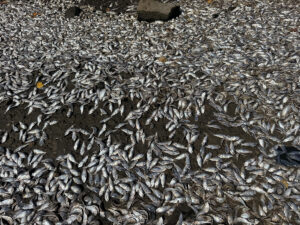
Neuse fish kill expected to extend beyond holiday weekend
July 3rd 2025
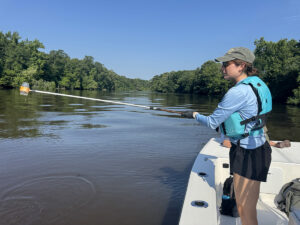
Swim Guide fails prompt Maple Cypress investigation
July 3rd 2025

Riverkeeper, town partners root out source of Smithfield sediment pollution
July 3rd 2025
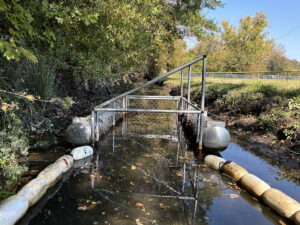
Trash trap No. 12 approved for Smithfield
July 3rd 2025
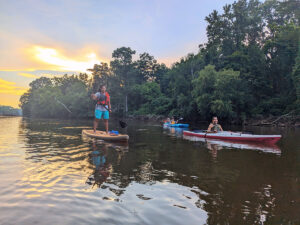
Sunset River Paddle fundraiser boosts Water Quality Fund
July 3rd 2025

Riverkeepers host quarterly Water Watch meeting
July 3rd 2025
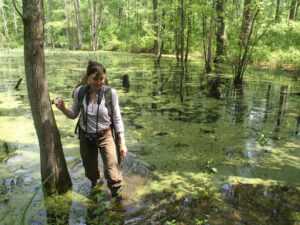
Public hearing will determine the fate of many NC wetlands
June 26th 2025
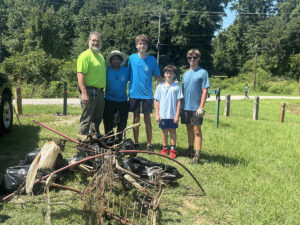
Clayton gets first official trash-trap cleanout
June 25th 2025
